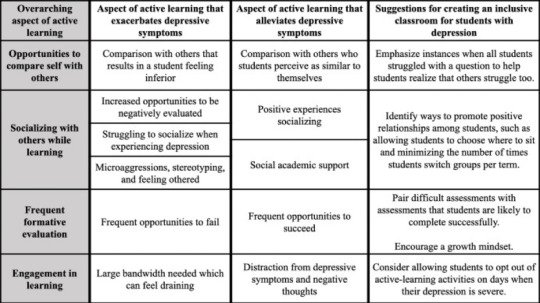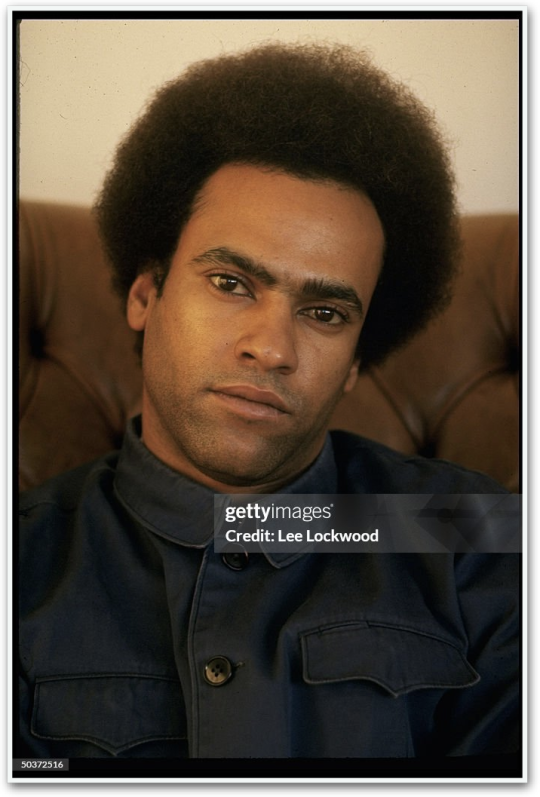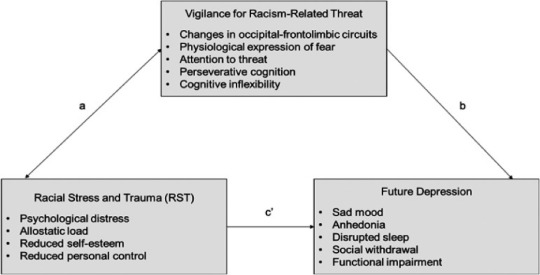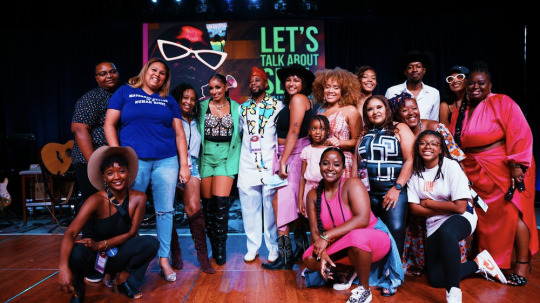#harmreductionheroes
Explore tagged Tumblr posts
Text
Content Warning
"The perception of incarcerated, BIPOC, queer, trans and/or disabled people’s bodies as resources to be mined and experimented upon is as old as white supremacist capitalism."
2 notes
·
View notes
Text
130 organizations representing advocates and experts from public health, overdose prevention, and drug policy across the nation released a roadmap on how states should spend $50 billion in opioid settlement funds (as reported on recently by NPR, see above).
There is an emphasis on harm reduction and housing first strategies, as well as decriminalization and addressing the negative impacts of the War on Drugs.
Read the full roadmap here: https://www.vocal-ny.org/wp-content/uploads/2023/08/A-Roadmap-for-Opioid-Settlement-Funds-Final-Updated.pdf
And visit the National Sea Change Coalition website to find supplemental media links, videos, and more about the Roadmap:
0 notes
Text
Some excellent Know Yr Rights resources...
0 notes
Text
There is a common misperception that harm reduction and abstinence are in conflict with one another, but the reality is that abstinence is a harm reduction strategy if the needs of the people using are centered, their agency to use is preserved, and there are supports provided in the form of medicated assisted treatment / alternative therapies.
From the Article:
“NHRC believes in a harm reduction-informed approach to smoking cessation,” he told Filter. “NHRC plans to work with Global Action to End Smoking to develop and implement an education and dissemination campaign, with the aim of reducing the numbers of people who smoke cigarettes.”
This work will be guided by “centering people with lived and living experience and actively listening to them,” he said. “Reparative justice is important to communities that have been harmed by the promotion and sale of combustible tobacco, and this work is within NHRC and Global Action’s mission.”
Salandy has lived experience of his own with tobacco use. “I first started smoking cigarettes in the Army,” he related. “Back in the early ‘80s, during Basic Training, soldiers would be provided complimentary small packages of cigarettes from tobacco companies’ promotional representatives. Cigarette breaks were a common occurrence back then.”
“I stopped smoking using a harm reduction approach,” he continued. “Primarily, nicotine replacement therapy. Nicotine patches and [the medication] bupropion, later on, served as aids to quitting.“
0 notes
Text

Trying to lean into the learnings of this study and practice the suggestions in the last column of this table in the context of HRH groups.
0 notes
Text
youtube
[Chorus] I can’t smell the flowers Felt empty now for hours Lost my powers I can’t smell the flowers I’m sick of all these towers Think I done too many downers
[Verse 1] Hard to see the value in these half-hearted encounters Can’t deal with the truth so we just change the world around us To feel and smell just like we want it to Fuck what we're meant to do Can’t hang 'round, be no fool Wasting time just getting high
[Pre-Chorus] Getting high To get by Clear my mind Yeah, blue skies All this time I’ve been flying From up here
[Chorus] I can’t smell the flowers Felt empty now for hours Lost my powers I can’t smell the flowers and I’m sick of all these towers Done too many downers
[Verse 2] Stuck inside a space I have created for Myself to be round no one else I’m working on my spells To get me out of here Oh yeah, your words are wisdom Oh yeah, you keep on giving But nah, there’s no forgiving And yeah, I’m over thinking Some days I am just sinking Static, nah, I ain’t driven Talking but I ain’t listening
[Chorus] I can’t smell the flowers Felt empty now for hours Lost my powers I can’t smell the flowers and I’m sick of all these towers Done too many downers
[Verse 3] I can’t smell the flowers Been hanging out for hours Where’s my powers And I’m sick of all these towers towering over me Feeling fucking lonely Like no one even knows me Not even my own homies
[Pre-Chorus] Getting high (Getting high) To get by (To get by) Clear my mind (Clear my mind) Yeah, blue skies (Yeah, blue skies) All this time I’ve been flying (I've been flying) From up here (From up here)
[Chorus] I can’t smell the flowers Felt empty now for hours Lost my powers I can’t smell the flowers I’m sick of all these towers Too many downers I can’t smell the flowers Felt empty now for hours Lost my powers I can’t smell the flowers I’m sick of all these towers Too many downers
0 notes
Text
“As an epidemiologist, I study substance use and mental health trajectories across the life course. We know that many problems in the area of substance use and mental health begin early in life and that children who come from less advantaged backgrounds are at higher risk. Those problems also influence their education and socio-economic situation in the longer term, often fueling a vicious circle.”
0 notes
Text

Huey P. Newton
“I always carried lawbooks in my car. Sometimes, when a policeman was harassing a citizen, I would stand off a little and read the relevant portions of the penal code in a loud voice to all within hearing distance.
In doing this, we were helping to educate those who gathered to observe these incidents. If the policeman arrested the citizen and took him to the station, we would follow and immediately post bail.
Many community people could not believe at first that we had only their interest at heart. Nobody had ever given them any support or assistance when the police harassed them, but here we were, proud Black men, armed with guns and a knowledge of the law.
Many citizens came right out of jail and into the Party, and the statistics of murder and brutality by policemen in our communities fell sharply.”
― “Revolutionary Suicide” by Huey Newton.”
1 note
·
View note
Text
"to overcome the internalized, interpersonal, and institutional racism, the impact of racism on health and on mental health must be an integral part of educational curricula, from undergraduate levels through continuing professional development, clinical work, and research"
0 notes
Text
0 notes
Text
0 notes
Text
It is far more difficult to practice personal harm reduction when mired in institutions that actively cause harm — this is why directly impacted people turn to activism and mutual aid to address social issues.

“To build a healthier America for all, we must confront the systems and policies that have resulted in the generational injustice that has given rise to racial and ethnic health inequities" - CDC Website
It’s important to see government recognition of this truth. But they are not the source of this truth. There are still political prisoners condemned to die in U.S. prisons for their involvement with the social movements that spoke truth to power many decades ago. If we want to achieve the goal of harm reduction, we need to honor that “the personal is political”, and listen to the political activists who risk their lives every day to stand up for the dignity and rights of their communities.
“Racism also deprives our nation and the scientific and medical community of the full breadth of talent, expertise, and perspectives needed to best address racial and ethnic health disparities.” - CDC Website
0 notes
Text
“Music therapy is “a systematic process of intervention wherein the therapist helps the person to promote health, using music experiences and the relationships that develop through them as dynamic forces of change” (Bruscia 1998, p.20). During this process, a trained music therapist engages with the participant in a range of active and receptive approaches to listening to, discussing, creating, improvising and performing music.”
“Music therapy may be practised from a variety of theoretical orientations, and in the setting of substance abuse treatment may include elements of cognitive‐behavioural, humanistic, psychodynamic and/or neurobiological theory, among others. Music therapists work with abstinence‐based, controlled use, and in harm reduction contexts (Aldridge 2010; Ghetti 2004), in inpatient treatment centres, community mental health centres, adult day healthcare centres, state and general hospitals, therapeutic communities, and aftercare programmes (Aldridge 2010; Ghetti 2004; Silverman 2009)."
0 notes
Text
youtube
The National Harm Reduction Coalition recognizes the Reproductive Justice movement as foundationally important to the Harm Reduction movement. What parallels to harm reduction concepts do you take away from the video above?
Here is an excerpt from an in-depth article on the concept of Reproductive Justice, written by Loretta Ross in 2017 (free download available here: https://www.researchgate.net/publication/322536609_Reproductive_Justice_as_Intersectional_Feminist_Activism
What is Reproductive Justice? In June 1994, twelve black women working in the reproductive health and rights movement birthed the concept of reproductive justice at a pro-choice conference on health care reform in Chicago. We created “reproductive justice” because we believed that true health care for women needed to include a full range of reproductive health services. While abortion is one primary health issue, we knew that abortion advocacy alone inadequately addressed the intersectional oppressions of white supremacy, misogyny, and neoliberalism. From the perspective of African American women, any health care plan must include coverage for abortions, contraceptives, well-woman preventive care, pre- and postnatal care, fibroids, infertility, cervical and breast cancer, infant and maternal morbidity and mortality, intimate partner violence, HIV/AIDS, and other sexually transmitted infections. In simplest terms, we spliced together the concept of reproductive rights and social justice to coin the neologism, “reproductive justice.”
“The 12 women and their affiliations at the time who became the founding mothers of the concept of reproductive justice were:
Toni M. Bond Chicago Abortion Fund
Reverend Alma Crawford Religious Coalition for Reproductive Choice
Evelyn S. Field National Council of Negro Women
Terri James American Civil Liberties Union of Illinois
Bisola Maringay National Black Women’s Health Project, Chicago Chapter
Cassandra McConnell Planned Parenthood of Greater Cleveland
Cynthia Newbille National Black Women’s Health Project (now Black Women’s Health Imperative)
Loretta J. Ross Center for Democratic Renewal
Elizabeth Terry National Abortion Rights Action League of Pennsylvania
“Able” Mabel Thomas Pro-Choice Resource Center, Inc.
Winnette P. Willis Chicago Abortion Fund
Kim Youngblood National Black Women’s Health Project"

https://www.sistersong.net/
SisterSong is a Reproductive Justice advocacy organization that is fighting for the legal right to bodily autonomy. More information on their advocacy and legal work available on their website (linked above), and on the ACLU website:
WHAT'S AT STAKE
“Georgia physicians, reproductive health care providers, and advocates filed a lawsuit in the Superior Court of Fulton County on June 26, 2022 bringing a state constitutional challenge against H.B. 481, a law banning abortion at approximately six weeks of pregnancy — just two weeks after a person’s first missed period and before many people even know they are pregnant. This lawsuit comes one week after a federal appeals court allowed Georgia’s six-week ban to take effect for the first time since it was passed in 2019, causing an immediate, devastating crisis as clinics were forced to turn away patients in waiting rooms across the state and to cancel many upcoming appointments.”
1 note
·
View note
Text
youtube
The effects of music on the brain.
“Music therapy may be practised from a variety of theoretical orientations, and in the setting of substance abuse treatment may include elements of cognitive‐behavioural, humanistic, psychodynamic and/or neurobiological theory, among others. Music therapists work with abstinence‐based, controlled use, and in harm reduction contexts (Aldridge 2010; Ghetti 2004), in inpatient treatment centres, community mental health centres, adult day healthcare centres, state and general hospitals, therapeutic communities, and aftercare programmes (Aldridge 2010; Ghetti 2004; Silverman 2009)."
—https://www.ncbi.nlm.nih.gov/pmc/articles/PMC6472527/
CW: Objectification of the person who is the focus of the video; problematic documentary practices.
0 notes
Text
The above PubMed Articles reference gamification and game theory as related to the Methodology of the Harm Reduction Heroes.
0 notes